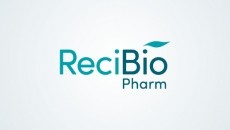New azithromycin format is one-dose RTI killer
as several days' treatment with other drugs for respiratory tract
infections (RTIs), according to new clinical data.
The new azithromycin formulation allows for delayed release of drug, which occurs in the small intestine instead of in the stomach, maintaining tolerability. This, together with the long half-life of azithromycin microspheres, makes it possible to deliver the entire two-gram dose as a single dose regimen.
It could also help eliminate the growing problem of antibiotic resistance, in which taking an incomplete course of therapy is a major factor to the increase in incidence.
The results, from three studies presented at the 44th annual Interscience Conference on Antimicrobial Agents and Chemotherapy (ICAAC) in Washington DC, US, demonstrated one dose of Pfizer's azithromycin microspheres was comparable to a seven-day regimen of clarithromycin XL for the treatment of CAP and seven and ten day courses of levofloxacin for the treatment of AECB and ABS respectively.
In two of the three trials presented, azithromycin microspheres was compared to levofloxacin (500 mg/day for seven days) in 446 subjects with AECB. The clinical cure rate in the azithromycin microspheres group was comparable at 95 per cent to the levofloxacin group's figure of 96 per cent.
"Antibiotic resistance is a growing problem in the treatment of community respiratory tract infections," commented Michael Niederman, professor of medicine at the New York's State University
"Given the efficacy of a one-time-dose for these common infections and the assured compliance, the hope would be that this type of regimen could help minimise the emergence of antibiotic resistance."
Microspheres have been used to deliver several different types of drugs, including antigens, by injection or oral administration, steroids, peptides, proteins, and antibiotics.
The new azithromycin formulation makes use of polymers that are biodegradable by means of nonenzymatic degradation. The microspheres can be formulated for release up to several months or even years, depending on the chemical and physical properties of the specific drug to be encapsulated and the specific polymeric excipient that will be used.
Azithromycin has been available in the United States since 1992 under the tradename Zithromax. Its US patent expiries in 2005, along with Abbott's respiratory tract infection (RTI) therapy Biaxin (clarithromycin).
The microspheres were also compared to levofloxacin (500mg/day for ten days) in 541 patients with ABS. Clinical success rates were comparable, 94.5 per cent of patients treated with azithromycin microspheres and 92.8 per cent of levofloxacin-treated patients. ABS is an acute infection of the sinuses that can cause purulent nasal discharge, nasal congestion, fever and facial pain or tenderness.
In the other study, azithromycin was compared to clarithromycin XL (1 g/day for seven days) in 501 randomised subjects with mild-to-moderate CAP. Treatment with azithromycin microspheres resulted in comparable pathogen eradication rates of 91.8 per cent versus clarithromycin XL's 90.5 per cent. The clinical success rate in the azithromycin microspheres group was 92.6 per cent versus 94.7 per cent in the clarithromycin XL group. CAP is a lung infection acquired outside of hospitals or extended-care facilities.
A one-dose-only treatment is a significant advance, giving physicians and patients an option that can effectively treat the most common respiratory tract infections that occur in adults, while also minimising the risk of non-compliance with therapy.
According to market researchers Datamonitor, the expected rapid influx of generic equivalents as a result of patent expiry will not only affect the competing brands, but all RTI therapies, which will face stiff competition from cheaper, equally efficacious treatments.
The impact of patent expiry on blockbuster antibacterial sales was clearly highlighted by GlaxoSmithKline's Augmentin (amoxicillin-clavulanate) which suffered a 52 per cent fall in sales in the US between 2002 and 2003, the period in which the final patent expired.
Meanwhile, two novel antibacterials, Aventis's Ketek (telithromycin) and Genome Therapeutic's Factive (gemifloxacin), are due to be launched in the US in 2004. Both of these products will carry an indication for the treatment of RTIs.



















